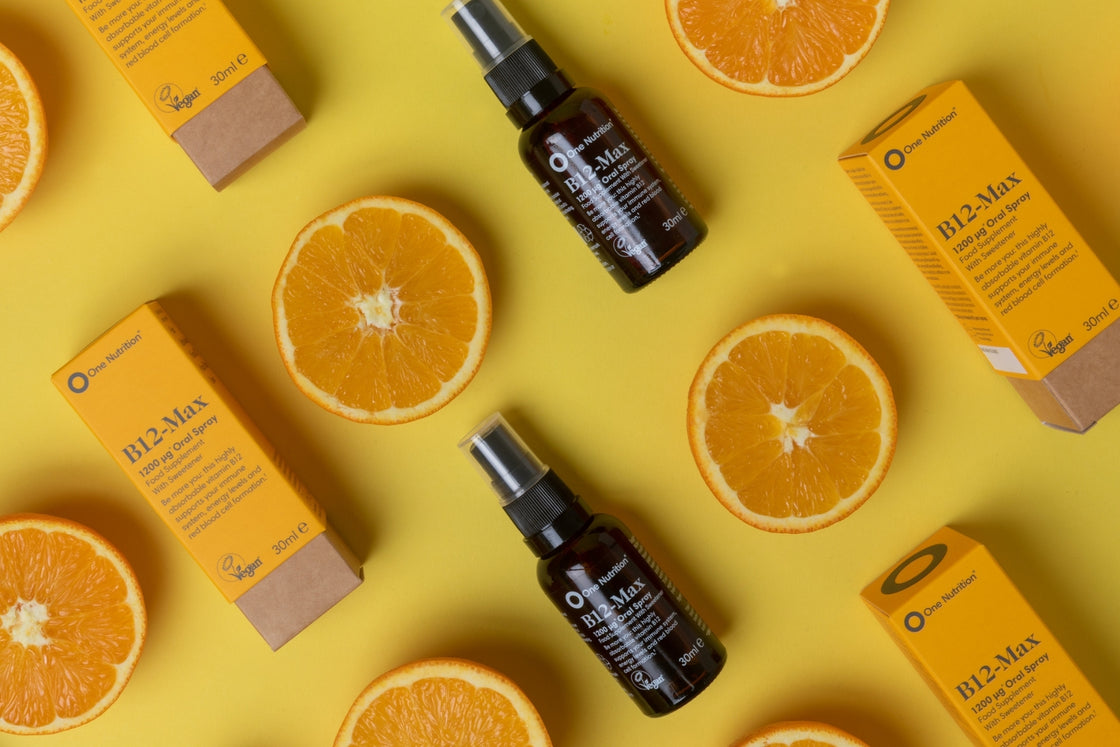Going through a tough time at the moment and feeling drained? We understand. A lot of people are currently feeling stressed, tired and fed up. If you are feeling this way you are not alone. It can also be challenging to keep yourself going with work and other tasks when you are feeling this way. Keeping yourself occupied and completing tasks is likely to make you feel better. If you are consistently feeling like you are running on empty, it could be due to a lack of vitamin B12 in your diet.
B12 Deficiencies
A lack of B12 can cause multiple issues that may affect how you feel in your daily life. A B12 deficiency can lead to anaemia . A common symptom of this lack of B12 can be fatigue and feeling extreme tiredness. If you have found yourself feeling more tired than usual it could be due to a lack of vitamin B12 in your diet. Other common symptoms include mood changes, dizziness from exercise and stress. So, if you are experiencing any of these feelings regularly, it can be worth ensuring that you are getting enough B12 throughout the day.
Symptoms of B12 deficiencies usually come on gradually. However, they can develop and become much worse if they are not dealt with. This is why if you suspect you may have a B12 deficiency, it is best to try and combat the issue as soon as possible by obtaining more B12, so issues don’t develop further.
What does B12 Do?
Vitamin B12 is an essential nutrient that our bodies can’t naturally produce. It is vital we obtain B12 from other food sources. B12 helps make creation of normal red blood cells and keeping the nervous system healthy. Vitamin B12 is vital when it comes to keeping up our energy levels as well as contributing to the normal function of the immune system
B12 helps formation of red blood cells, which help carry oxygen around the body. When we lack B12, our energy levels drop, and it can lead to us feeling fatigued and stressed. See our blog regarding the importance of vitamin B12 for more detail on what it does and where you can get it from.
What Can I Do to Get More B12?
According to the NHS, adults need around 1.5mg of vitamin B12 every day. B12 deficiencies aren’t common if you maintain a balanced diet. So, it is essential you include some food in your daily diet that contain a good source of B12. B12 is naturally found in a range of animal sources. Some of the highest B12 content can be found in liver, clams and red meat. B12 can also be found in salmon, eggs and dairy products such as milk, yoghurt and cream.
The fact that B12 is mostly found in animal products can make it difficult for vegetarians or vegans to obtain the daily recommended amount of B12. There are some options however, fortified cereal and fortified soy are two vegan food sources that contain B12.
However, if you are struggling to obtain the necessary amount of B12 from your regular daily diet, it can be a good idea to take a supplement such as One Nutrition B12-Max to ensure your body is getting what it needs. There isn’t enough evidence to suggest taking too much vitamin B12 can be harmful. However, it is recommended that you don’t intake too much. So, it is best to aim for the recommended daily amount of around 1.5mg.
If you are struggling with a consistent low amount of energy, stress or worry then you may be B12 deficient. It can be beneficial to take a supplement or try and increase your intake as part of your diet. If you think you're consuming enough B12 and the problems persist, then it is recommended that you see a doctor.



